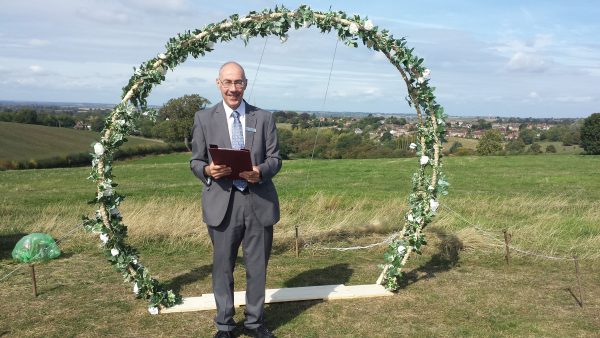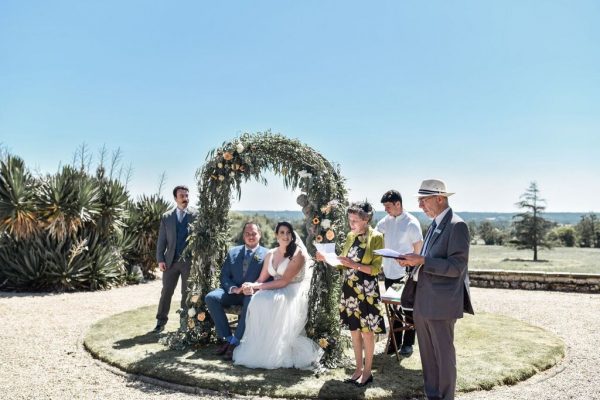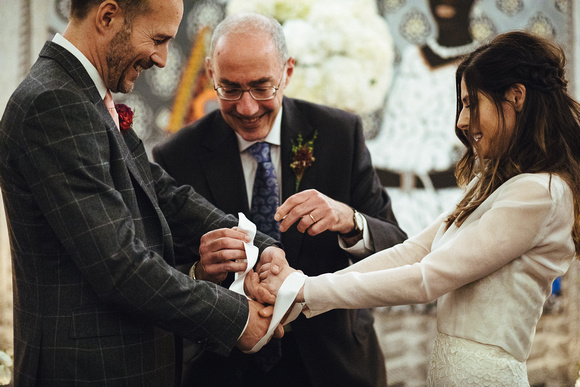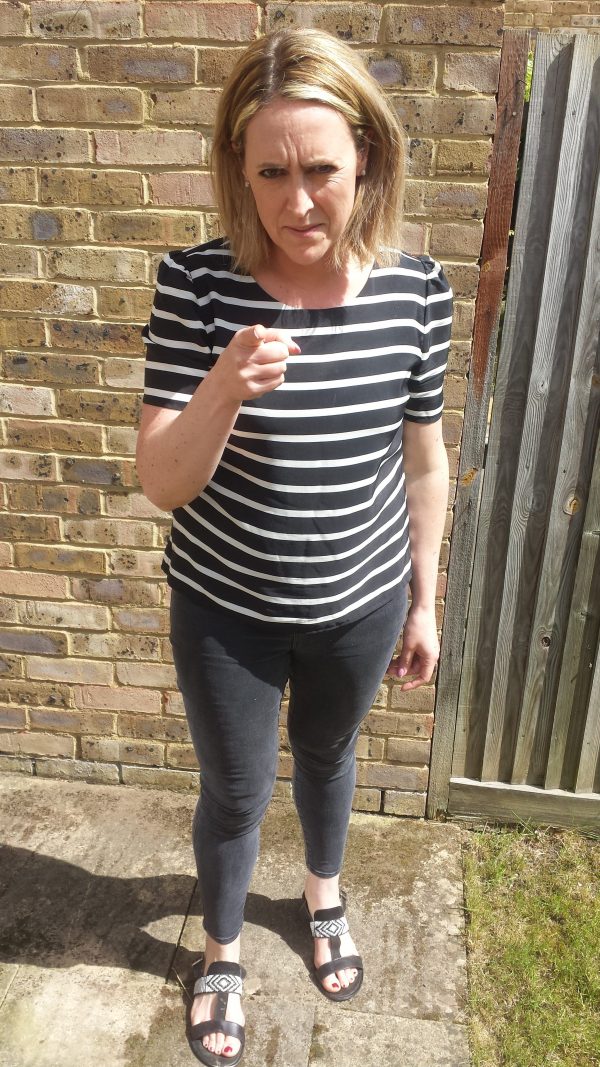
by Michael | Sep 16, 2019 | Blog
I’m afraid I’m old enough to remember a Simon & Garfunkel single with that title. It was the ‘B’ side of “Bridge over Troubled Water” (1970). (Do you even know what a “’B side’” was?!) The duo had in mind a very different world then, and the song is actually quite pessimistic, but some truths hold good today.
Anybody
worth their salt should be aiming at customer satisfaction. Doesn’t matter what
industry or trade they’re in. That’s the bottom line, surely. Wouldn’t you
agree?
The minimum
Of course, it’s not always easy to achieve this. Things do go wrong, so you have to be able to respond appropriately. It’s essential to be willing to listen to the client’s grievance and to try and understand it. If you can put things right there and then, that’s got to be the best solution. Showing the client respect and empathy will normally appease them and a satisfactory resolution may actually enhance your reputation.
Sometimes
the client may seem to be “wrong”. (But isn’t the client “always right”,
actually?) Well, on occasion, the experienced supplier may be able to advise
what might not work, or what might be more effective. However, they should not
bludgeon their views on to the client. Nobody likes to be patronised, and even
the experienced professional can misjudge things.
My goal
I am not
alone in believing that a supplier should aim for “value added plus”. It’s not
just a question of satisfying the client, but of delighting them.
Shortly after conducting a recent wedding for a lovely couple, I received this e-mail:
Thank you for making the day such a
Wonderful experience for us, what you did for us was beyond brilliant and
exceeded all our expectations!
So what
should a supplier be doing, to deliver that “wow” factor?
What’s the Secret?
Of course,
there’s no magic formula – not least, because each profession and each supplier
is different. However, there are a few principles that will apply generally.
In my field,
I encourage and ask a lot of questions in our initial meeting or conversation.
The client may be nervous and needs to understand what I can offer. I certainly
need to understand what they actually want. On occasion, I need to scratch
beneath the surface.
If they don’t
really know what choices are available, it’s my job to explain this.
I aim to
ensure that my clients normally understand my process (eg sending them drafts
that they can change, if they want). That includes payment terms, Ts & Cs.,
and what I do – and do not – offer. It’s important to be transparent. If there might
be any extras, then I’ll be up-front about it.
I don’t want
the client to receive any unpleasant surprises. That includes on the day. I
ensure that they approve beforehand every word that I am going to utter at the
ceremony.
On occasion, there might be a lot of time between agreeing the ceremony and the big day itself. Keeping in contact – even irregularly – gives peace of mind. It can also serve as a nudge if the client still has something to do (eg write their own vows!).
It’s also
important to be accessible, patient and helpful throughout the process.
On the day, I always try to arrive in very good time, check everything carefully and do what I have to do calmly and without fuss. I shall have practised the ceremony, so I can expect to present it professionally and beautifully. I always remember that the event is all about my clients, not about me. I aim to keep them calm and happy.
If you want
to find out more about how I can deliver that “wow” factor, please give me a
call!

by Michael | Jul 22, 2019 | Blog
Apparently, one
of the first concerns of a couple is when they can get married.
By that I mean what day of the week or season they can marry in this country. Not the legal age for marriage.
Full religious
And let’s leave full religious weddings out of the mix. Just to say that Christian weddings will usually not take place on Sundays or Jewish ones on Saturdays. They may be possible on certain festivals, and not on others. Better not to get into all that!
Suffice it to say that your best bet is to approach your minister individually!
Register Office
If you’re
solely marrying at a Register Office, you must make an appointment. The two of
you need to go down, along with two witnesses, for the ceremony. This will
normally be on a working day (except on a Bank Holiday).
By
arrangement, the registrars will come out to certain venues, provided certain
criteria are met and extra fees are paid. This will often include weekends.
Such weddings
have to take place between 8 a.m. and 6 p.m.
Alternative Ceremonies
Any other ceremonies can be held at your discretion. If you are using a venue (such as a hotel, castle, stone circle), as long as you meet the venue’s conditions and you pay them (and any other suppliers, not least, the civil celebrant!), you have free choice.
You will
find that a public holiday will be a more expensive time for you, because staff
have to be paid extra. You may also find that certain holidays can cause
problems with guests. You could theoretically hold your wedding on Christmas
Day, but that would create a dilemma for many potential attendees, especially
families. It might also be difficult for venues to recruit staff then, or for
suppliers to come, as there would be no public transport. You might lose out
big time!
If booking
during the summer holidays, give guests plenty of notice (before they book
their holidays!).
Because
Summer is a popular time for weddings, prices can be higher than at
unfashionable times. Similarly, if you book your event for morning or
afternoon, you may be able to get your venue to budge on their price.
Avoid
Valentine’s Day too, if you want to cut costs.
Finally, returning
to the day of the wedding, Friday and, in particular, Saturday tend to be
dearest. Wednesdays, say, may be cheaper, but, if it was a destination wedding,
people would have to take a lot of time off work.
Summing up
There is considerable flexibility (if you do your homework). It is a fallacy that you have to marry at the weekend, although that remains the most popular time.
Take into consideration the issues mentioned above, but feel free to make your own decision. Your big day must be when you want it!

by Michael | Jul 15, 2019 | Blog
People often ask me if they can include something humorous in a ceremony. “What will people think?” they ask.
Of course,
the answer depends on what expectations and intentions they may have. What
effect are they looking for?
Initially, my response is “yes”. “Certainly”, if it’s a wedding and “with care”, if it’s a funeral.
The traditional response
How traditional do you want your ceremony to be? If that’s your chosen path, then don’t expect much hilarity from the full Church service.
I officiated at one (secular but traditional) high society wedding, where the family were very keen that all appearances were correct and that guests would have no grounds to find fault with any part of the service.
Actually, I wondered whether it would mean more to the guests to witness a moving, sincere ceremony, rather than a fabulous spectacle. And if it entertained a bit, thanks to a touch of humour, all the better!
An alternative approach
At my “usual” weddings, however, (often, part-religious or secular), there is scope for personalising the ceremony. Normally, I advocate including some “serious” elements but also a few lighter moments. The ring blessing and vows, say, could be earnest – but the vows might include some humorous promises (based on personal idiosyncrasies of one of the couple).
I like to put in the couple’s story, where possible. This frequently offers scope for humour.
Humour in funerals
As I have implied, humour is more likely to be expected – and accepted – at a celebratory event.
However, although funerals should offer the opportunity to grieve, I believe they should also be a celebration of life and therefore should not exclude well-placed and tasteful humour.
Ad-libbing requires great care. A funeral will almost never be the place to be controversial or crude.
The best place for humour is in the eulogy or personal tribute. If the deceased had a special saying, favourite joke or some unique characteristic, reference to that will be appreciated by most who knew them. I loved the lady, who would go ballistic whenever Philip Schofield appeared on TV. When I referred to this, everybody – especially, the family – recognised, appreciated and enjoyed it!
If that’s appropriate for the deceased, why not have it?!
There’s nothing – in theory – to stop you having a whale of a time at a funeral. Sometimes, everyone is encouraged to wear a particular football shirt, say, to mark the deceased’s passion. The tone of such a service is likely to be quite light!
I hope I’ve made it clear that the tone you desire for weddings or funerals is ultimately down to you. Discuss it with your celebrant, and you can have the ceremony that suits and keeps a smile on everybody’s face.
Photo: www.lyndseygoddard.com

by Michael | Jul 1, 2019 | Blog
People often
ask me how I became a celebrant.
The truth is that I had never heard of the term “civil celebrant”. In 2012 I was plying a different trade (fairly unsuccessfully!), and turned up at a business networking event. I noticed a man on his own, so I approached and asked him what he did. David explained that he created and conducted civil ceremonies for people.
Not necessarily religion
The only life-cycle ceremonies I had experienced thus far had been attending full religious ones. Some were Jewish – of various types – some Christian, one Hindu. I had enjoyed some more than others. They had always been conducted by an ordained minister following a standard order of service.
David told me that it was he who created a bespoke order of service. He would meet and then work together with the family to give them ideas and guidance so that he could draw up a draft service.
There was no reason why he couldn’t put in religious elements, part-religious ones or keep it strictly secular. It all depended on the client. Every one of the elements would be discussed with and agreed by the client.
This began
to make sense to me. After all, why shouldn’t you have the ceremony that you
want for your big day?
There would then be an exchange of e-mails and the client would end up with exactly the ceremony of his/her dreams, having approved every word. Then it would be down to David’s presentation skills on the day.
Why me?
I loved the concept. I also knew that I had the skills needed. I am a good listener and have learned the sort of questions I need to ask; I can write well; and, although I am basically shy, I am very happy to stand up in front of a crowd and deliver a memorable service. (I’ve never quite understood that!)
Next steps
Anyway, I was smitten. I rang David a night or two later with a few more questions, and knew this was for me. So, to training.
David pointed me in the right direction, and I wasted no time. While I was training as a Wedding Celebrant, it was pointed out that I possessed the qualities for a funeral celebrant. (Not sure how much of a compliment that might be!) Anyway, that was my next course of study.
And then, duly certified, I was let out into the wide world!
I have thoroughly enjoyed my years to date as a celebrant. I have enabled couples to have the ceremony of their dreams – and that includes conducting funerals that are “just right”. No two ceremonies have ever been the same. Sometimes, I have had to work under quite severe pressure, and not everything has always gone to plan. However, I have had a marvellous, fulfilling, rewarding time so far, and expect to continue doing so for a few years to come.
I certainly have no regrets about becoming a civil celebrant!
Photo: www.lyndseygoddard.com

by Michael | Jun 24, 2019 | Blog
Nobody
relishes being classed as a “bridezilla”, but there do seem to be a few around …!
As a civil celebrant of some seven years’ standing, I have experienced one or two in my time! However, I’m glad to say that they have been the exception, rather than the rule.
What is it?
A bridezilla
is basically somebody who is totally self-centred. They are only concerned with
their own aspirations and desires.
An example
I came across a fine one a few years ago.
I had received an enquiry about a wedding in Essex, which I was available to do. We needed a discovery conversation to see if we could work together.
The lady concerned chose a Skype call, and it was all set up. Unusually, she conducted it on her own. I wasn’t particularly enamoured of her, in truth, but brides are entitled to be demanding, and it looked like I would be able to offer what she wanted.
After a
while, I saw a man slinking around in the background, and I asked her if that
was her intended. Indeed, it was. So I asked her if she’d like to invite him to
be part of our conversation.
“Oh, no,” she responded, “He’ll do what I tell him. This is my wedding.”
I wasn’t impressed. Needless to say, there wasn’t any future in our collaboration!
A different example
One other
experience comes to mind. By contrast to the Essex wedding (if it ever took place!),
I was invited by the groom to come over to his office discuss how we might do the
wedding.
I seemingly ‘passed the interview’, as I was next invited to their home to meet the bride. Their home turned out to be in a close off London’s Bishop’s Avenue. (Some will now realise that we are talking serious money here.)
The groom was delightful; the bride rather unsmiling, although she was pleasant enough. It became clear that she had OCD tendencies! One thing that I did not expect was for her to record me reading aloud, and send the recording off to her parents for approval.
When I got the job, and I had written the final draft, I had to go over again for a rehearsal, where every detail was checked and refined. The bride was even more unsmiling this time!
I could understand that she wanted her society wedding to be perfect, but this was nothing compared with what I saw at the weekend of the wedding.
The day before, another rehearsal had been arranged, and we got through this, even though the bride was showing real signs of stress. She found fault with most things, and, when her groom was unwise enough to intervene in the interests of fairness, she turned on him quite viciously.
An hour or so before the ceremony, I was invited to their suite. The bride seemed to be at war with the world. Almost everybody was the recipient of her tongue (I got away with it quite lightly!), but the blame for everything was laid at the door of the groom.
She shouted at, and humiliated, him in front of make-up artists, florists, myself, and all and sundry. Certainly, had I been the groom, I would not have married her!
In the event, the day went smoothly and beautifully, and she was able to enjoy the event (and let others enjoy it too!).
Dealing with Bridezilla
Once again, I acknowledge that weddings are stressful for anybody. You want to make a great impression and have a fabulous day. You engage a team of people to collaborate, and depend on their skill and professionalism. Things can go wrong (although they may be resolved seamlessly), but don’t necessarily matter at all. (Except to a Bridezilla.)
I escaped the worst of the maelstrom by showing calmness and confidence. (Not to say I wasn’t nervous, though!) I didn’t interfere in what didn’t directly concern me, and had to let the bride blow her top as and when.
I do think it was a pity that the bridezilla probably spoiled the wedding for the groom (certainly, the run-up) by being so demanding and nasty. However, as far as I know, they are still married, so there is probably a happy ending to this story after all!
If you know
anybody who might like to work with a consummate professional for their big
ceremony, please send them my way. But think twice, if they’re a Bridezilla!




